As an Amazon Associate I earn from qualifying purchases.
From diet soda to skinny cookies, these days there is a diet version of everything. Low calorie foods are booming. People turn to light foods as a way to get healthy and lose weight. But are low calorie foods healthy?
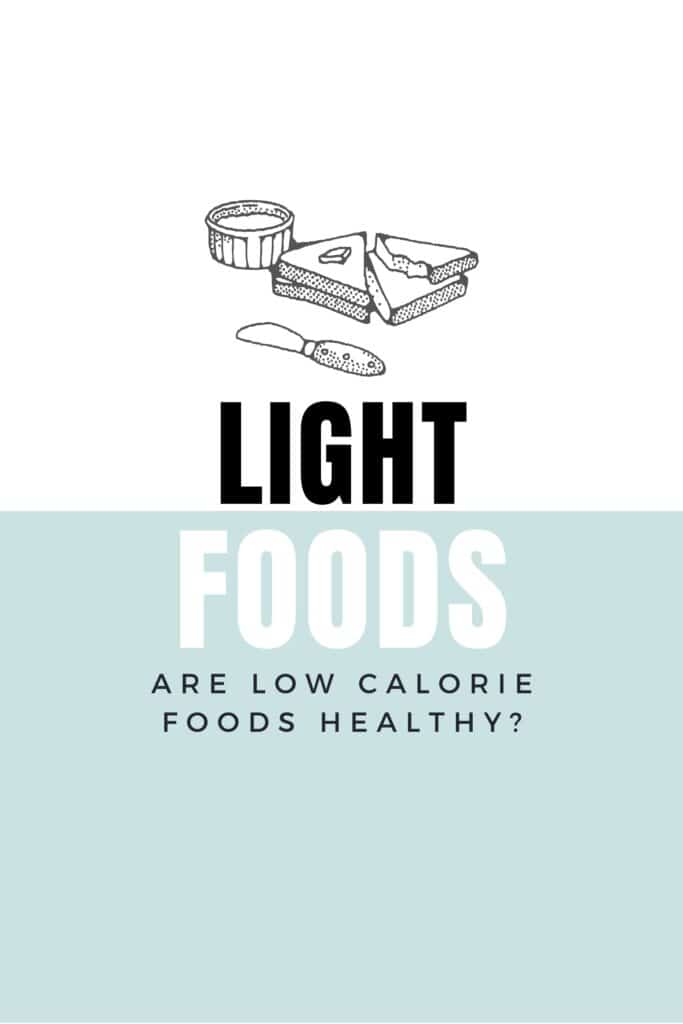
In this article you are going to learn everything you need to know about low calorie foods and how to choose the right foods for your health.
Is a calorie a calorie?
“A calorie is a calorie” – they say – “you eat more than your burn and you’ll gain weight, you eat less and you’ll lose weight”.
But is this actually true? Is a calorie a calorie?
If the “calorie in – calorie out” idea seems to make sense, in reality there is much more behind a calorie. All calories are not created equal!
First, different calorie sources can have significantly different effects on hunger and hormones. For instance, protein rich foods have a higher satiating power than carbohydrates. That’s why high protein diets tend to be more effective for weight loss.
Second, different foods have different thermic effects on metabolism. The thermic effect of foods is a measure of how much energy is required for the body to digest, absorb and metabolize the food itself. Ranking number one, the thermic effect of protein amounts to 25 – 30 %. Fats and carbohydrates, instead, score much lower.
- Protein: 25 -30 %
- Carbohydrates: 6 – 8 %
- Fats: 2 – 3 %
Last but not least, the quality of foods matters. We are what we eat. And it goes without saying that 400 calories of French fries do not nourish our body as 400 calories of wholesome foods would.

How to read nutrition labels
Light, low-fat, sugar-free, diet food…Nutrition labels can be confusing (and incredibly misleading). So, before addressing the question “are low calorie foods healthy?”, let’s have a closer look at some food labeling guidelines established by the FDA.
- Fat-free: less than 0.5 grams of total fat for a given reference amount.
- Calorie-free: less than 5 calories for a given reference amount.
- % fat-free: products that are labeled as __% fat free must contain 3 grams or less of total fat for a given reference amount. A “100% fat-free” claim may be made only on foods that meet the criteria for “fat free” and also contain less than 0.5 grams of fat per 100 grams and contain no added fat.
- Cholesterol-free: less than 2 milligrams of cholesterol for a given reference amount and 2 grams or less of saturated fat for a given reference amount.
- Saturated-fat-free: less than 0.5 grams saturated fat for a given reference amount, and no more than 0.5 grams of trans fatty acids.
- Low-fat: 3 grams or less of total fat for a given reference amount.
- Low-calorie: no more than 40 calories for a given reference amount (except sugar substitutes).
- Low-cholesterol: 20 milligrams or less cholesterol and 2 grams or less of saturated fat for a given reference amount.
- Low-saturated-fat: 1 gram or less of saturated fat for a given reference amount and not more than 15% of calories from saturated fat.
Source Calorie Control Council

Are 0 calorie foods good for you?
The only truly 0 calorie food is water, but there are certainly other foods with almost no calories. Some 0 calorie foods are good for you (if part of a balanced diet, we should eat enough calories to survive and thrive), others are better to avoid.
Essentially, whether low calorie foods are healthy or not depends on the actual food of focus.
Celery stalks, lettuce or cucumbers are examples of 0 calorie foods that are healthy. Besides being very low in calories, these foods are also highly nutritious because they come with minerals and vitamins.
On the other hand, foods like diet soda, artificial sweeteners or skinny syrups shall be treated with a pinch of salt. Despite their negligible caloric content, these foods aren’t that good for you and should therefore be limited.
First, they are loaded with artificial sweeteners, preservatives, flavorings and co. – definitely not so nourishing. Second, the consumption of artificially sweetened foods such as diet soda has been linked to diabetes and heart diseases.
Last but not least, consuming overly sweet foods on a daily (no matter if 0 calorie or not), habituates our brain to the sweet taste. This can lead to increased cravings, overeating and eventually obesity.
Why light foods aren’t always the healthiest option
“Light” is a general label assigned to food that have fewer calories than the conventional product. For instance, light yogurt is a calorie-reduced alternative to full-fat yogurt.
Although some are actually healthy, you should be particularly careful with light foods. And here’s why!
A reduction in calories is often achieved by cutting fats, which are known for giving the food a rich taste. To compensate for taste and make their products more palatable, the food industry loads low-fat foods with tons of sugars.
But even if added sugar has fewer calories than fats (4 kcal/g vs. 9 kcal/g), it is by no means healthier. In fact, an excessive consumption of refined sugars has been linked to cardiovascular diseases, diabetes, high blood pressure and weight gain.
This doesn’t mean that all light products are high in sugars, however. There are in fact plenty of calorie-reduced foods that are also incredibly good for you.
How to choose light foods that are healthy
“So.. are low calorie foods healthy or not? And if yes, which ones?”
If you are now quite confused, keep on reading. You are now going to find some guidelines for making more conscious decisions at the grocery store. So that next time you know what light product to choose!
P.S. everything can be part of a healthy diet, balance is the key. That’s why I use the verb “limit” rather than “avoid”.
What to limit
- Stay away from added sugars. Glucose syrup, corn syrup, dextrose or sugar, added sugars come under many different names, shapes and forms.
- Beware of artificial sweeteners. Whenever possible, look for products that are either unsweetened or sweetened naturally (such as with stevia or erythritol). Limit artificial sweeteners such as aspartame, sucralose or acesulfame K to name a few.
- Keep your eyes open for preservatives, colorings, thickeners, artificial flavorings & co. These are ingredients that humans are not meant to consume on a daily. Try to limit their consumption.
What to choose
- Stock up on wholesome lean foods that are naturally low in calories. Vegetables, lean meat, white fish or cottage cheese to name a few.
- Opt for products with minimal ingredients. When grocery shopping, take some time to read the ingredient list. Go for those foods that have just minimal, natural ingredients (that you can actually pronounce).
- Look for low-fat products without added sugars. Low fat plain Greek yogurt or low fat cottage cheese to name a few.
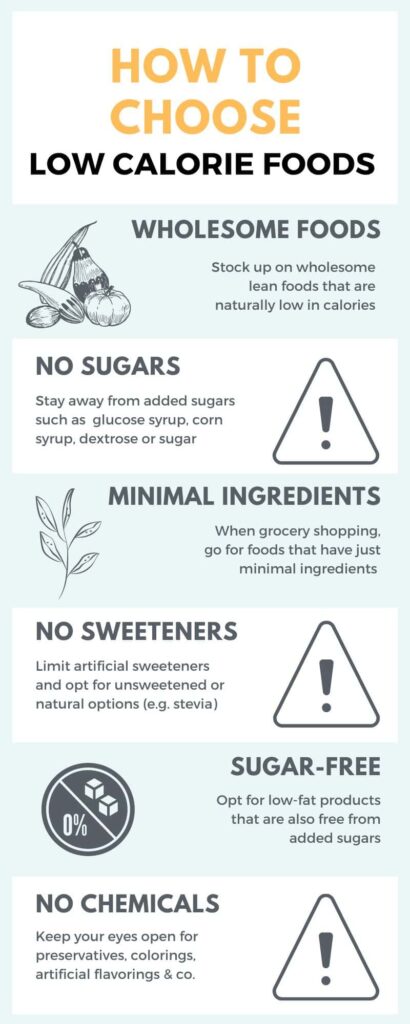
Summary: are low calorie foods healthy?
As more people turn to low calorie foods for weight loss, the interest for light products is growing.
As not all calories are created equal, not all low calorie foods are actually healthy. When it comes to the question “are low calorie foods healthy?”, the answer depends on the focus food itself.
Although everything in moderation can be part of a healthy diet, wholesome foods that are already low in calories or fat-reduced products with no sugar should be preferred over foods with added sugars or artificial ingredients.
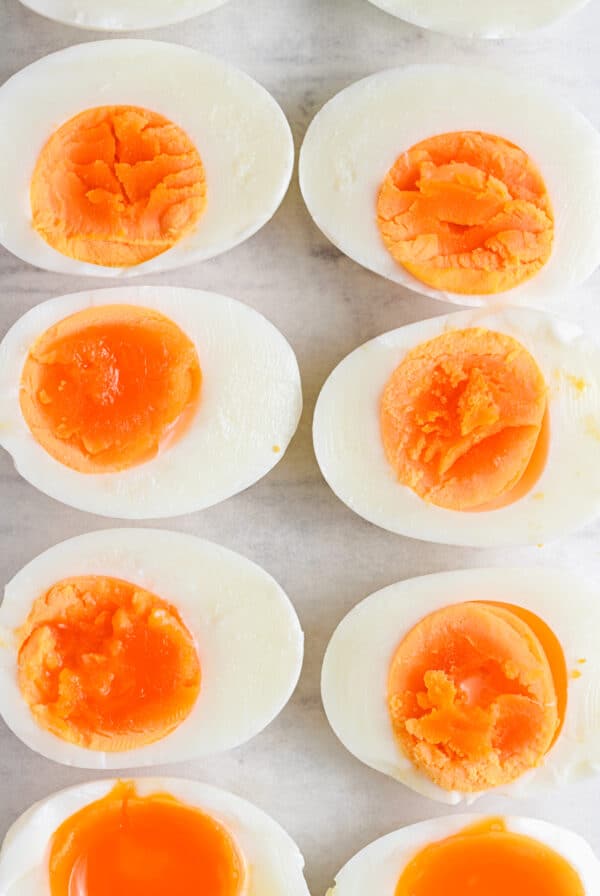
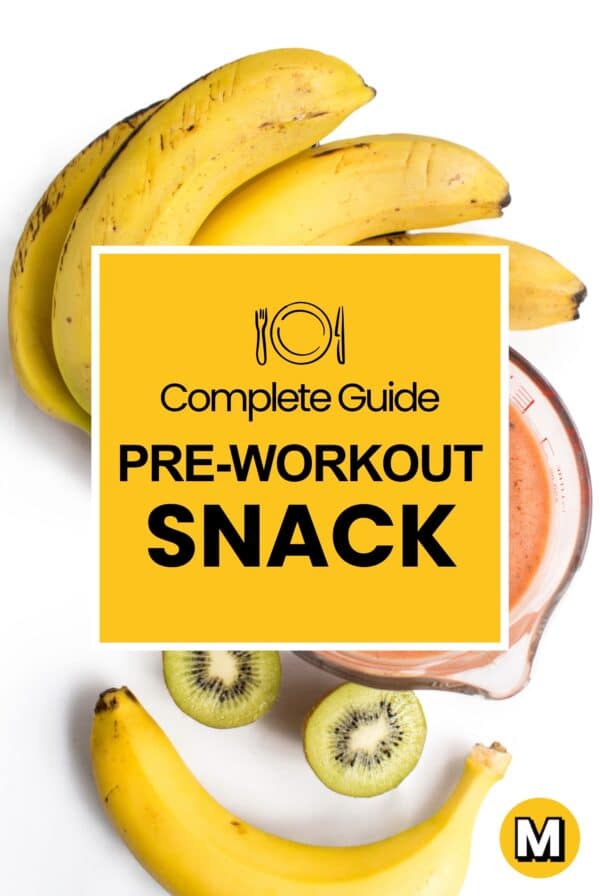
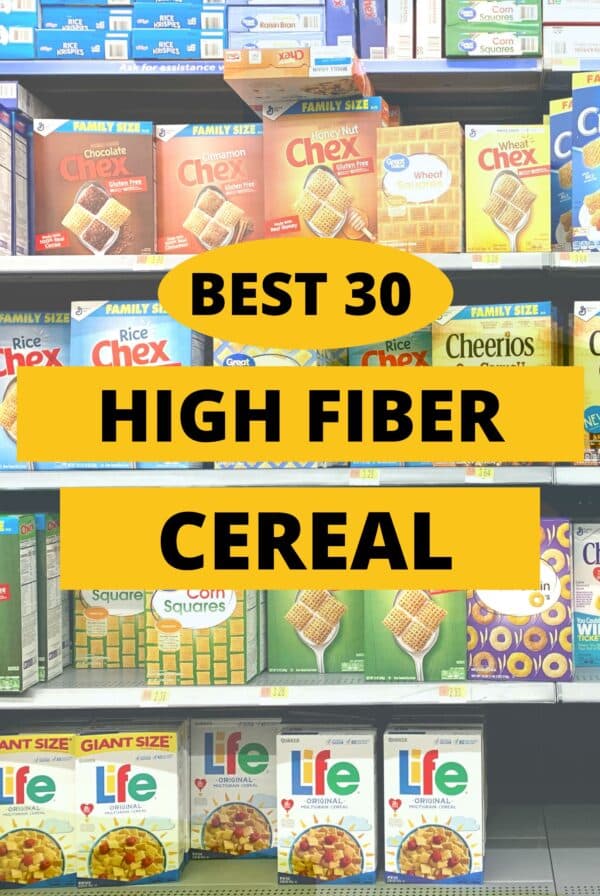
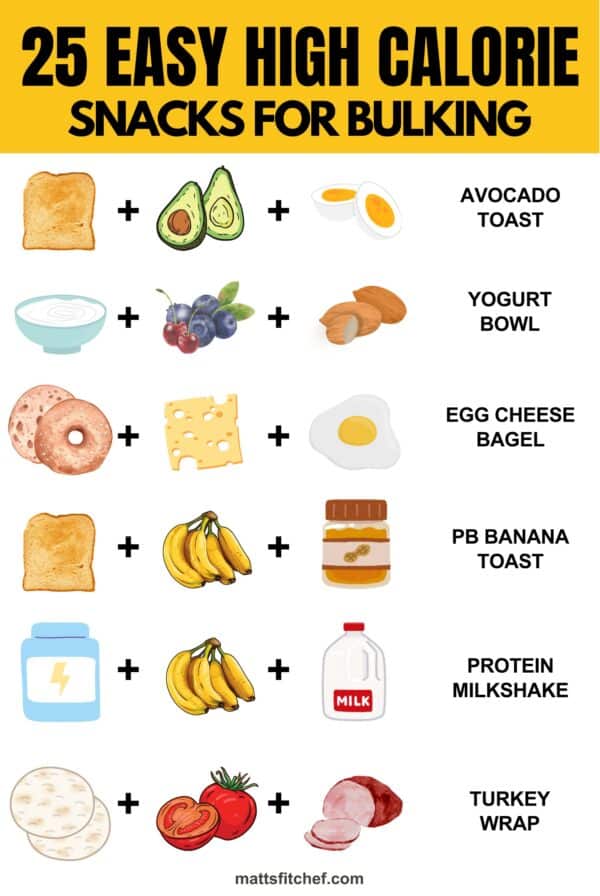
Thank you for this newsletter! It is an amazing content and very useful in these days when we are confused about labels and marketing!
I am looking forward for more newsletters and useful informations 🙂
Hey Maida!
Thank you very much for your comment, and thank you even more for appreciating the newsletter! Glad to know you find it useful☺️
I wish you a great day,
Matteo